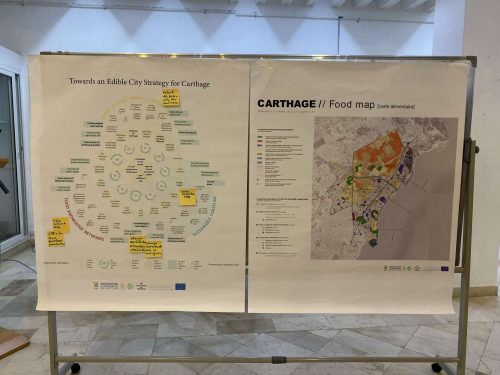by Marisa | Mar 24, 2023 | Non classifié(e)
The Edible Cities Network held its 2nd annual conference, ‘Advancing the Edible City’, from the 15th – 17th March 2023. This built on the success of 2022’s ‘Making Cities Edible’ conference, and was the first year that the annual conference was held in-person. The conference was hosted and co-organised by RMIT University, the Solidarity Foundation of the University of Barcelona, and Humboldt Universität zu Berlin.
With a combination of keynote talks, roundtable discussions, and field trips to urban food projects in Barcelona, the event provided a platform to hear from experts in the fields of urban farming, sustainable food collectives, community gardening, and food systems research. It also offered a space to create and discuss future visions for our urban food systems at various networking sessions.
40 speakers representing 25 different organisations spoke as guest speakers, and they were heard by an audience of 125 in-person attendees, with speakers and in-person attendees coming from 20 countries across 4 continents. On the first day, 100+ online attendees also logged into the live stream.
Kicking off with talks, discussions and the Edible Cities Network Awards
The first day was held in the beautiful Aula Magna of the Universitat de Barcelona, and opened with short remarks from the various conference organisers, as well as short speech from the commissioner of Food Policy in Barcelona, who remarked that ‘cities must becomes allies’ in the fight to transform our food systems.
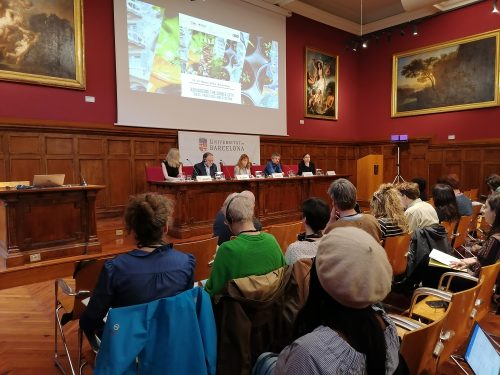
After a day of talks and discussions, there was a poster and networking session, where representatives from 8 different organisations presented posters explaining their work. Simultaneously, attendees had the option to go on an interactive walk to a nearby market, creating their own ‘edible maps’ en route where they drew maps based on the greenery they could see, and would like to see, in the area.
The day ended with the Edible Cities Network Awards Ceremony, where four winners from very diverse initiatives were awarded.
Finding out more about greening Barcelona & trips out into the field
Day two kicked off with a session focussing upon urban planning in the city of Barcelona. Attendees heard about the city’s urban nature plan, whose goals include increasing the amount of green space by 1m2 per resident, doubling the number of participants in nature-based activities, adding an extra 100 hectares to the city’s natural parks, and creating 10 biodiversity shelters. The administration also introduced the city’s urban agriculture strategy, which focusses upon three main objectives: more greenery and biodiversity; conservation and improvement of existing biodiversity; carried out with and for residents, done using approaches involving governance and education.
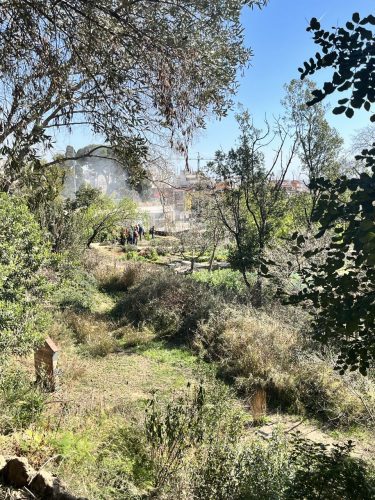
The session was followed by a tour of the recently reopened Jardines del Doctor Pla i Armengol, where gardeners from the association for the promotion of urban gardens gave a tour of the produce growing. The rest of the day was spent on field trips, from which there were three to choose:
1: Edible City Solutions, Social Challenges, and Education – organised by the University of Barcelona Solidarity Foundation. This trip included a visit to ‘ASSIS’ Foundation and Centre Cruillo, a garden where the FSUB provides a qualification in urban agriculture for vulnerable inhabitants of the city. It ended with a tour of the ‘Rec Comtal’, a canal that supplied Barcelona with water for ten centuries.
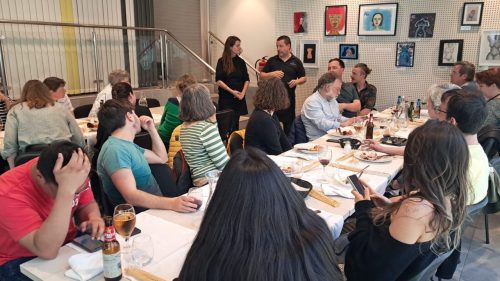
2: Promoting agroecological transition in Collserola Natural Park – Arran de Terra Co-operative. Attendees visited the vineyard L’Olivera in Collserola, a natural park on the outskirts of Barcelona that has over 30 peri-urban agriculture initiatives. The vineyard works with socially excluded citizens who live on-site, and gardens using agroecological practices.
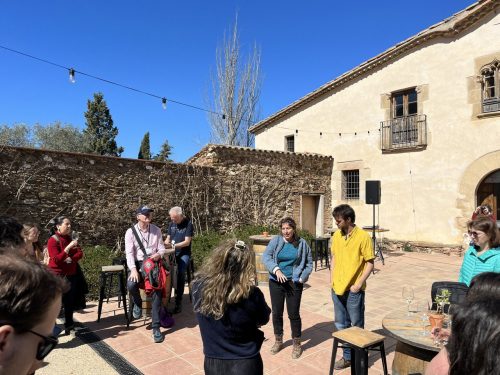
3: Permaculture & radical social change – 12p Permaculture Design. Attendees visited the Can Masdeu centre and its community gardens, and enjoyed a workshop on permaculture, gardening, and worm composting held by permaculture educator Alfred Decker. The land has been managed as a commons by the Can Masdeu initiative – a network of projects attempting to recover the valley as an agricultural and social space – since 2001.
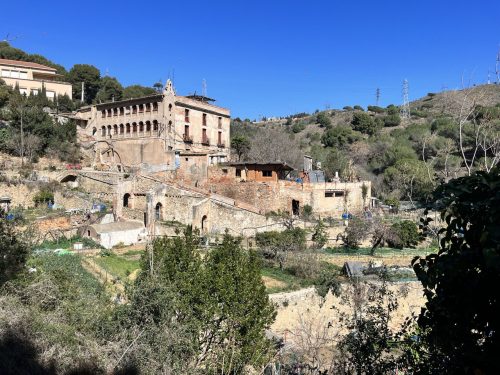
Engaging the margins and filling foodbanks
The final day opened with talks focussed on ‘engaging the margins’, and was held at the Universitat de Barcelona’s recently opened Food and Nutrition Campus. Discussions opened on the theme of ‘edible schoolyards’, looking at how actors produce edible schoolyards, and what the barriers are for implementing more greenery in schoolyards. This talk followed by an introduction to research on urban agriculture in Dhaka, and the problems that disenfranchisement create for engaging with urban agriculture. Finally, an interactive ‘bingo’ workshop on the barriers and strategies for the implementation of edible nature-based solutions rounded off the opening talks.
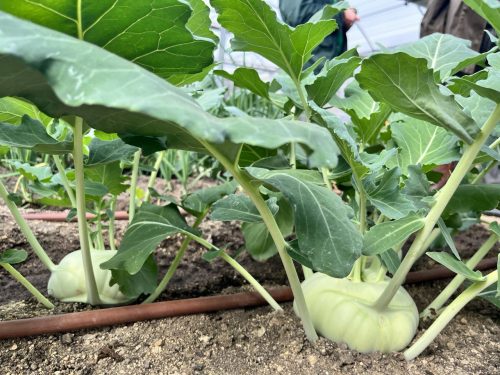
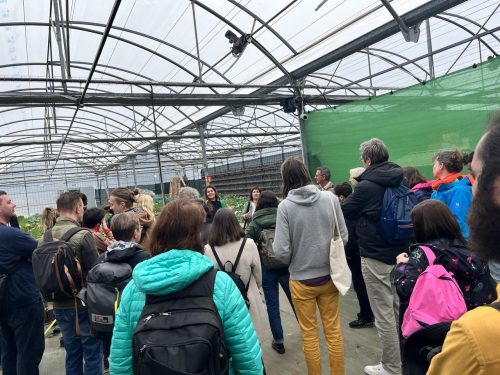
There was then a visit to the greenhouse and gardens, which are maintained by students at the university, with all produce being donated to local food banks. For the final session of the conference, attendees chose from four workshops: on the future of urban agriculture, on sustainable public procurement, on planetary health and social engagement and a session where participants were invited to play the ‘Edible City Game’, which is a simulation game offering the opportunity to build a more sustainable Sant Feliu de Llobregat.
The conference closed with a speech from Nevelina Pachova from RMIT Europe, inviting attendees to join the Edible Cities Network to stay in contact and carry on the conversations initiated over the 3 days. The day ended with a goodbye lunch held outside, with a final opportunity for networking between participants.
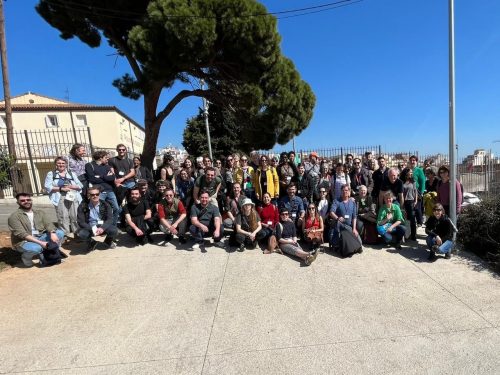
by Edi | Mar 23, 2023 | Non classifié(e)
The course organized by the COST Action Circular City (CA17133), with the collaboration of water specialists ICRA, was designed to support training in the field of Nature-Based Solutions (NBS) and Circular Cities for a wide range of public and private stakeholders. The course had a special practical focus to provide local stakeholders with essential practical knowledge to realize green and circular cities.
In that sense, many examples were related to the upcoming greening and re-naturalisation interventions that are planned to take place in Girona in the near future. 30 attendees from the local administration, academia, private and civil society sectors were trained to achieve greener, circular and thus more liveable cities. The Edible Cities Network project supported the local organization.
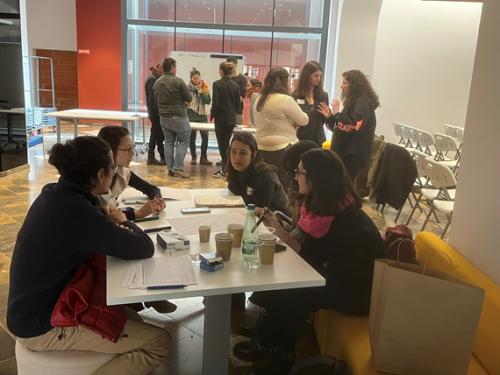
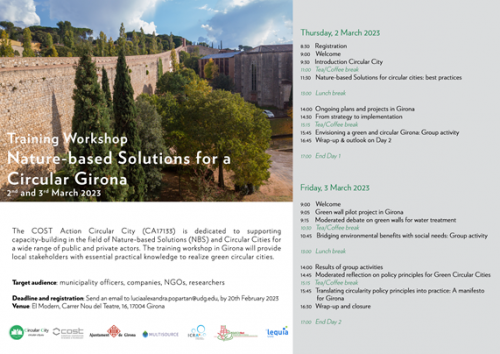
by Edi | Feb 7, 2023 | Non classifié(e)
Members of Groen010 got together to work on their communication strategy, and met with a representative of London National Park City to discuss Groen010’s campaign to turn Rotterdam into a National Park City too. In December, the team also held another edition of their monthly “Green Cafe” events, where Rotterdamers are invited to join members of Groen010 to visit different green initiatives in the city and have a coffee.
Furthermore, last month Groen010 and Rotterdam’s greenbroker, Els van Dam, organised a meeting with members of the different working groups in the City Team Groen010 and members of the municipality. Together, on February 21st, they will organise the first of a series of Green Tables to get to know each other better, work together at the municipality’s green agenda and Groen010’s manifesto, and find out common goals and opportunities to cooperate.
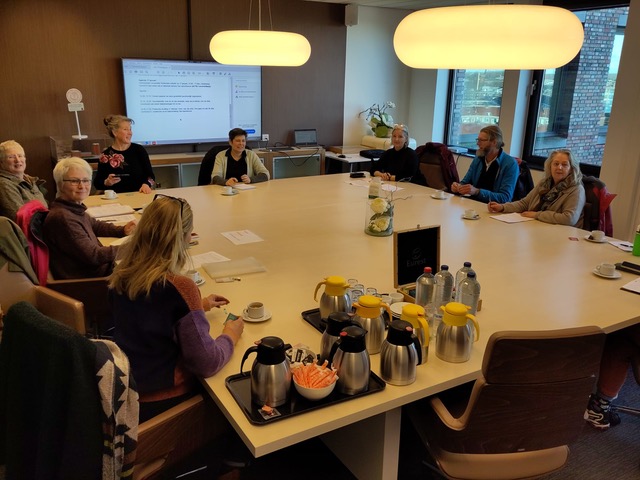
Members of Groen010 and the Rotterdam municipality working together
by Edi | Dec 7, 2022 | Non classifié(e)
The network of water management MARIS Berlin Brandenburg—Management of urban water cycles annually awards the AQUA AWARD for outstanding achievements in the water industry, as well as the AQUA SCIENCE AWARD for excellence of young scientists.
This year, the AQUA AWARD was awarded to the project consortium consisting of Berlinovo Grundstücksentwicklungs GmbH, Nolde & Partner – innovative Wasserkonzepte GmbH and Lokus GmbH for a gray water treatment system with waste heat recovery during the new construction of a student residence in Berlin Pankow with 399 apartments. The jury praised the state-owned housing association for the courage to implement an innovative project that contributes to Berlin’s climate goals and can serve as a pioneer in the field. The executing companies, experienced in the planning and implementation of such technologies, were commended for the low-maintenance and efficient plant, which already generates five times more energy than is needed to operate the building when it is less than half occupied In addition, 20% energy savings are achieved in domestic hot water heating and approximately 30% fresh water is saved. The project demonstrates the untapped potential of gray water recycling, and serves as a reference point for the city.
Photo courtesy of MARIS Berlin-Brandenburg
by Editorial Team | Nov 8, 2022 | Non classifié(e)
The 4 winners of the Oslo Municipality’s Garden Awards for 2022 have been chosen, and Linderud community garden – the site of EdiCitNet’s Living Lab – won the award for this year’s garden with a focus on environmental, social and economic sustainability!
In total there are 4 different categories:
1. Community garden of the year.
2. Private garden of the year.
3. Garden of the year with a focus on biological diversity.
4. Garden of the year with a focus on environmental, social and economic sustainability.
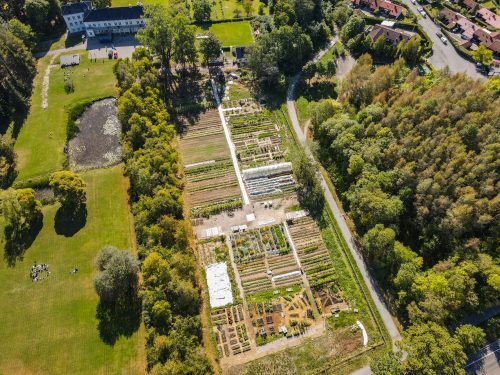
Oslo Municipality’s Garden Awards honour gardens that contribute to making Oslo a green, beautiful, healthy and people-friendly city. The garden prize is a competition with long traditions and was first held in 1921. Congratulations Linderud community garden!
by Editorial Team | Oct 24, 2022 | Non classifié(e)
Nous sommes plus qu’heureux d’annoncer le bon déroulement de deux ateliers organisés à Carthage pour développer la stratégie qui permettra à la ville de devenir comestible. 10 participants de l’Administration (différents ministères et organes judiciaires) et 24 participants représentants les différents acteurs de Carthage (société civile, associations, ONG, éducation, propriétaires fonciers) se sont réunis dans deux ateliers pour discuter avec les membres du City Team, du futur comestible de Carthage. Après avoir rappelé aux présents, la démarche et les résultats de leur travail et exoposé les cartes et les diagrammes qui leur correspondent, les partenaires Edicitnet.
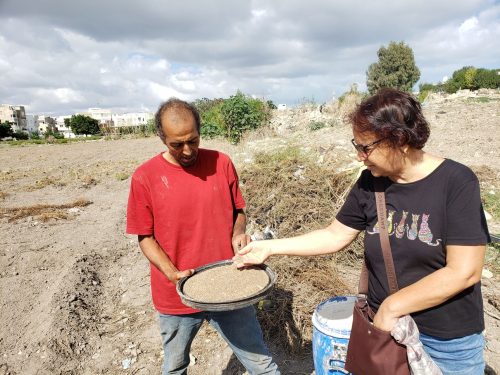
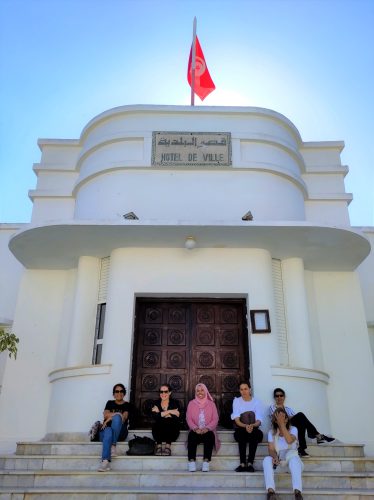
La municipalité de Carthage, l’association REACT, l’Université des ressources naturelles et des sciences de la vie de Vienne (BOKU), l’Université de Brighton et Transition Oststeiermark ont organisé et animé, des échanges et des discussions avec les participant-e-s autour de 3 thèmes intégrants la vision commune et ce afin de collecter leurs critiques, suggestions et co-construire, ensemble, les fondements des scenarios de transition.
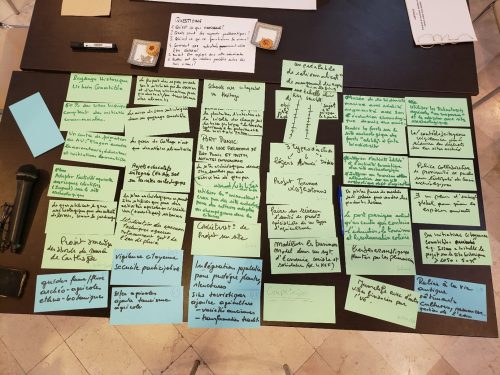
Deux journées pleines et laborieuses au cours des quelles, le City Team de Carthage a pu noter d’une part l’ampleur des défis institutionnels et reglementaires a relever et d’autres parts, l’adhésion des participants au processus de transition vers une ville comestible. Certains propriétaires fonciers ont exprimé leur engagement pour rendre leurs terres archéologiques comestibles. Les directeurs d’école ont manifesté leurs intérêts pour mettre en place des plans sur la façon de passer aux écoles comestibles. La société civile a rappelé les besoins en sites sûrs et récréatifs pour les activités de loisirs. Les ministères ont décrit les limites du possible et négocié des voies. Les agriculteurs, parmi lesquels le détenteur du prix EdiCitNet 2021, ont présenté des projets pilotes. EdiCitNet et l’ensemble des participant-e-s partagent la vision d’une Carthage comestible qui peu àpau, se rapproche de la réalité.
